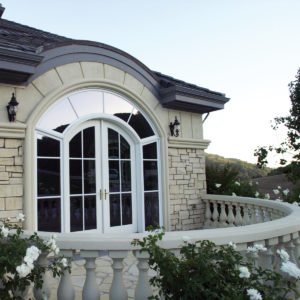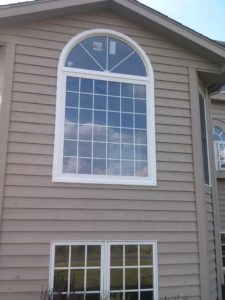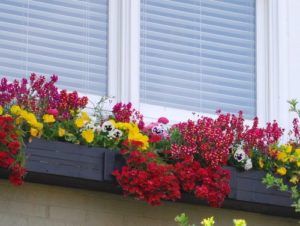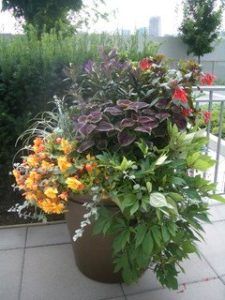Deciding Between Fiberglass, Wood, Composite & Vinyl Windows
 Nowadays, homeowners have an abundance of choices in materials for replacement windows. It all comes down to which advantages you’re prioritizing for your project. Each of the four most popular window materials on the market—fiberglass, wood, composite, and vinyl—has specific advantages in terms of looks, cost, and energy efficiency. If you’re uncertain which window material will work best in your situation, this handy comparison guide can clarify matters and help you make an educated decision.
Nowadays, homeowners have an abundance of choices in materials for replacement windows. It all comes down to which advantages you’re prioritizing for your project. Each of the four most popular window materials on the market—fiberglass, wood, composite, and vinyl—has specific advantages in terms of looks, cost, and energy efficiency. If you’re uncertain which window material will work best in your situation, this handy comparison guide can clarify matters and help you make an educated decision.
Fiberglass
Made from strands of glass fiber woven through heated resin, fiberglass is known for its toughness. It holds up well in extreme temperatures and easily withstands daily wear and tear. That’s why fiberglass is used for applications that require high-level durability, such as boats, hockey masks, and, of course, window frames. For windows that will last a long time yet are easy to maintain, fiberglass is a smart choice. Fiberglass windows are also especially good at maintaining indoor comfort since many well-crafted options meet or exceed ENERGY STAR® standards for thermal efficiency. Fiberglass windows can carry a higher price tag than other window types, but homeowners benefit from their all-around performance and longevity.
Wood
Often called the original window material, wood offers a natural warmth, charm, and authenticity that no other material can quite match. As builders and remodelers know, wood windows add a touch of distinction to homes of any architectural style. Contrary to what many people believe, wood is generally better than synthetic materials at insulating a home, and, in fact, has up to 400 times the insulation of steel. This means wood windows will help keep your home’s interior cooler when it’s hot outside, and warmer when outside temperatures plummet. One drawback of wood is that it requires more maintenance than other materials and may warp or rot if not properly treated. The good news is that many wood windows on the market are clad in aluminum or vinyl, making them highly resistant to the elements and reducing the need for frequent maintenance.
Composite
Increasingly popular across the country, composite windows are made from a blend of wood fiber and thermoplastic polymer. This material blocks thermal transfer nearly 700 times better than aluminum and is twice as strong as vinyl. Composite windows resist rot and decay, and don’t flake, peel, or corrode, making them extremely durable options for regions like the Midwest that often experience severe winters and blistering summers. As for beauty, composite windows can mimic the natural look of wood windows but don’t come with the wood’s high maintenance requirements. In fact, composite window frames require almost no maintenance.
Vinyl
Vinyl windows are among the most affordable you’ll find, and they’re also cost-effective options for homeowners who need durable windows, whether because of regional climate or to withstand hard daily use. Unlike untreated wood windows that can deteriorate under constant exposure to the elements, vinyl windows hold up strong in any season and won’t rust, blister, crack, or corrode over time. What’s more, they are virtually maintenance-free and don’t need to be scraped, painted, or stained. All it takes is a simple wash with soap and water every so often to keep vinyl-frame windows looking like new. With regard to energy efficiency, the sash and frame corners of vinyl windows are exceedingly airtight to prevent air transfer, which helps to control home heating and cooling costs.
Replacement Windows in Your Preferred Material
If you’re a resident of the Chicago suburbs and want to explore your options in fiberglass, wood, composite, and vinyl windows, contact Opal Enterprises. We offer and install premium replacement windows crafted to perfectly blend strength, energy efficiency, and beauty. With locations in Naperville and Des Plaines, Illinois, we have helped countless homeowners choose windows that are right for their homes and their budget.





